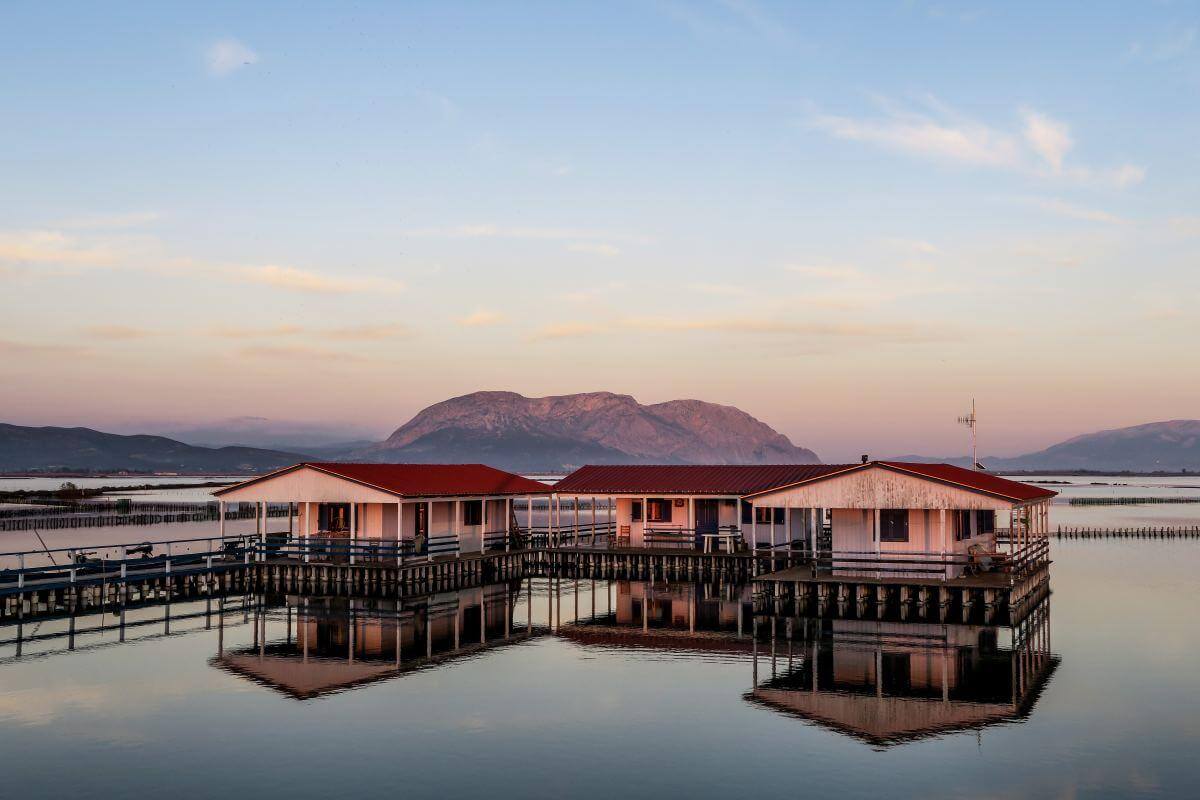美国国务卿约翰·克里在"选择美国"投资峰会上的演讲
Good morning. Thank you. Thank you very, very much. Thanks so much. Thankyou, Penny, for an extraordinary introduction. And based on that introduction,I accept the nomination. (Laughter.) I’m totally kidding. I’m out of that now;I’m out of that now.
I’ll tell you, I – about a coupleof months – I mean, before I was offered the job of being Secretary of State, Iwas still, obviously, serving in the United States Senate. And I was walkingthrough an airport one day, and this fellow – you notice when people have thatsense of recognition. And he points at me, and he says, “Hey, you, hey you,anybody tell you you look like that Kerry guy who we sent down to Washington?”(Laughter.) And I say, “Oh, they tell me that all the time.” He says, “Kind ofmakes you mad, don’t it?” (Laughter.) So I’m very happy to be out of theelectoral process, folks. (Laughter.) It’s just fine by me.
I’m really happy to be here andI’m very, very honored to be introduced by Penny, who is a good friend. She wasvery involved with me in 2004 when I ran for President. I’m just so thrilledshe is now our Commerce Secretary, and I’m very grateful for the effort and theenergy that’s gone into making this first ever summit such a success. No onewho knows Penny is going to be surprised by that, because everything that Pennyhas done – in business, in philanthropy, in public service – has always been asuccess. And those of you who know her know that she is really a dynamic CEO inher own right, and you can feel the energy and the leadership that she isalready bringing to the Commerce Department. She’s a fabulous partner and I’mthrilled by it; very, very happy to have her there.
And I was with her, and she said– I heard her in the introduction talk about being in Kuala Lumpur together,and we had a chance to go out and break bread together. And we were chatting,and she was reminding me of the story of her dad who started the familybusiness with one motel out in Los Angeles. And she kind of lived in the motel,and then she went up to San Francisco, and boom, it grew to six. And noweverybody knows what Hyatt Hotels Incorporation are – it’s a great Americanstory. It’s a great story of entrepreneurship, and we’re so proud of Penny andgrateful that she’s stepping back from the private sector to share with us thatexpertise and give us the energy and dynamics we need.
Her leadership of SelectUSA isjust one of the reasons that this effort has the potential to grow our country,and to grow all of yours, for those of you who are here visiting from so manyother countries. And we welcome you here. The single biggest reason SelectUSAis going to make a difference is, frankly, all of you, a group of very capablebusiness leaders, people who are hungry, who understand the dynamics of themarketplace, who are ambitious in your business goals, and come here with avision from nearly 60 countries around the world and from all across the UnitedStates.
I said in my confirmationhearing, when I was selected to become Secretary of State – I said to theSenators, my former colleagues, that in many ways, foreign policy today iseconomic policy. And leaders in government need to understand that. There is asynergy and an importance to this relationship that cannot be denied.
I think many of you are herebecause you understand this new marketplace that we’re all operating in –voracious, huge appetite. And very, very fast-moving. And we wanted you to comehere and SelectUSA is the umbrella that is hosting this event because webelieve deeply – we’re convinced, based on our dealings in the world, theexposure in the world, without arrogance, without chauvinism – that there is nobetter place in the world to invest than here in America. And there’s no bettertime to do it, in many ways, than right now, because some of the growth anddevelopment of the last few years has sort of equalized out in some places sothat manufacturing – as the Secretary said, the number of manufacturing jobshere now – we’re growing in manufacturing again because it’s competitive againfor a lot of different reasons.
So make no mistake: As we lookahead to the major trends that are going to define this new age, the factorsthat will determine which countries thrive, as well as which businesses thrivein this competitive marketplace, I think it’s crystal clear that the UnitedStates is going to continue, because it’s the nature and base of our economy,not because we’re somehow superior and somehow better. We just – the nature ofhow we have grown and where we’ve come from, from the Industrial Revolution allthe way through the 1990s and the tech explosion, and into where we are now. Wewill continue to lead the world in both innovation and education because of thenature of our universities, the structure, the number, and the openness withwhich they operate.
And I believe also people willhave access here because we will continue to work hard to make sure that wehave the most qualified workers and one of the largest consumer markets in theworld. Again, I say, I don’t say any of this with one touch of arrogance. I sayit because that good news for America is also, in fact, good news for theworld. It is good news for you and your businesses. And you know the importanceof the American economy in terms of driving China’s economy and other economiesin the world, and their importance now to driving other economies in theirregions and elsewhere. And it’s a principal reason why I believe you ought toinvest here. It’s why President Obama is making attracting job-creatinginvestment a top priority at a level unlike any before.
So you are sitting here thismorning, we believe, in the heart of the most open economy in the world. TheUnited States already is the world’s largest recipient of direct foreigninvestment. In addition, the investment Penny mentioned about manufacturing –we have about 5.6 million total good-paying American jobs, contributing closeto a trillion dollars to our economy that comes from foreign direct investment.And that’s why manufacturing, pharmaceutical, IT, energy companies from many ofyour countries are now setting their shop – setting up shop here in the UnitedStates every day.
Our trade agreements are built onthe premise of shared prosperity. We have deals that go both ways, and thosecreate good-paying jobs all over the world. They offer American firmsunprecedented global access, which we think is critical. But it also opens ourdoors and our markets to foreign firms. Now, I want you to – and I think,incidentally, I’ll just tell you, I think this is the direction of the world.This is the way the world is going to move. And those who understand it andthose who move most rapidly to embrace the higher standards and the opennessare those who are going to be able to take advantage of the new marketplace andbe leaders in the global economy. Nobody can put this genie back in the bottle.I used to have arguments up in the Senate with my colleagues. We had the greatNAFTA debate and all those other struggles, free trade versus the sort of oldorder, if you will. And the fact is that every single time we’ve moved forwardin that openness and every single time we’ve embraced one of those agreements,we’ve done better. We’ve transitioned – not always without some disruption, notalways without some dislocation, obviously, but with a massive infusion of newenergy and new creativity and new innovation and new jobs that come with thechange.
So I want you to measure whatwe’ve done with our neighbors, Canada and Mexico. We opened up North Americanthrough NAFTA, the greatest single step towards shared prosperity in thishemisphere. And we know we don’t have to share a border in order to sharebusiness, which is why we have free trade agreements with 20 countries fromChile to Morocco to South Korea – markets that together reach 700 millionpeople and seven trillion in GDP.
But none of that alone would actuallymake the United States the best place to invest if we didn’t also focus on ourworkers and make sure that we’re doing as much as we can to try to have thebest workers, the most skilled and the most productive that we can, in theworld, hopefully. And that’s true in part because we work hard to make surethat we train them in the best schools and universities, and a lot of effortthat goes into that. And we reach out to bring the brightest minds and the besttalent from all over the world. Many of you know, and many of you were, maybe,educated here in the United States. I can’t tell you how many heads of state,finance ministers, foreign ministers, prime ministers throughout government,heads of state and chief executives, who I meet as I travel the world and havefor the last 29 years as a senator, who came to the United States to go toschool, or who participated in educational exchanges in the Fulbright Program,for instance, or in other programs.
I meet them everywhere. TheForeign Minister of Saudi Arabia, who has been Foreign Minister for 30 plusyears or more, proudly reminds me of his education at Princeton, for instance.And the Foreign Minister of Vietnam today showed me, when I saw him in New Yorkat the United Nations General Assembly, handed me a photograph and said, “Thiswas you and me 25, 30 years ago when I met you at Fletcher School of Law andDiplomacy when you were a senator.” It’s incredible. That’s the new world we’reliving in. Maybe a lot of you have a cousin or a friend who came to our shoresto start their own business. In fact, about half of our small businesses arestarted by immigrants who know instinctively that the American Dream is notrestricted to those born in America.
If you go to Miami, Chicago, SanFrancisco, or any major city in America, you will find a community that speaksyour language, understands your culture, welcomes diversity, and can serve asan anchor for your next venture. And it’s not just the big cities. You’ve heardfrom President Obama, Secretary Pritzker, Secretary Lew, and so many others atthis summit about a lot of the success stories – Indian manufacturers expandingplants in Upstate New York, Singaporean companies extending their supply chainsto the heart of Texas, German multinationals creating jobs in small-townKentucky, Canadian pharmaceutical subsidiaries investing in suburban Ohio, andSouth African energy firms investing in Southwest Louisiana. That’s not in thefuture. That’s now. That’s the present.
So there’s no question that theUnited States is lucky to be able to offer the world’s best investment climatetoday. And I say lucky; we’re blessed to have it, but we do try to work at it.And President Obama has made it clear we’re going to work at it even harder. Noinvestment is about the past. It’s about the future. So we’re going to refuseto sit still. The world, as we all know, is getting more competitive, but soare we. Capital chases confidence, and I’m confident that we’re going tocontinue to get stronger and be more effective.
SelectUSA is a big reason why. Asyou’ve heard yesterday and perhaps during the week, those of you here, we’reworking hard now to make it even easier for you to be able invest here, andmaking that effort is a much bigger part of our mission, especially now at theState Department. At home, we are coordinating at every level, from mayors ofsmall towns all the way up to President Obama.
The State Department familyaround the world has been instructed, working with the Foreign CommercialService of the Commerce Department, that we must organize dedicated investmentteams, led by our capable ambassadors, drawing on the talent of our dedicatedembassy staff, and we’re going to actively encourage job-creating investmentsin the United States as a core priority.
Our diplomats already play a hugerole in helping your businesses succeed in the United States. In Estonia, ourambassador led an intensive outreach effort to encourage tech start-ups to cometo the United States. In Canada, embassy officers worked with a localautomotive firm in order to invest tens of millions of dollars in Michigan,where the American auto industry is now making a remarkable comeback. All overthe world, working hard to help businesses meet their goals, the StateDepartment is engaged in – with a new level of intensity and focus because ofthe nature of the global marketplace.
And we believe we can do more andwe’re going to do more, starting in 32 markets that represent more than 90percent of all the foreign direct investment that comes here. So what does thatmean for business leaders like you? It means that you’ll now have a singlepoint of contact to connect your company with our markets and investors, andthe economic development organizations who are here to help you and your businessesgrow.
Just the other week I met with agroup of CEOs in Indonesia, and they – some of them expressed frustration to mewith some of the foreign governments who preach the principle of open markets,but then they actually practice protectionism. These CEOs know, as you do, thatfreer markets create more opportunity, more growth, more dynamism, and moreinnovation. The freedom to fail is an important component of succeeding.
So in order to open more doorsand in order to continue the best investment climate in the world, we’re goingcontinue to add to our strong portfolio of trade agreements that reaffirm ourcommitment to open and free markets, and to a level playing field. Now,globalization means that people everywhere now have higher expectations. Inmany ways, the revolutionary events that are taking place in the Middle Eastand in some other parts of the world are a reflection of that. The Tunisianrevolution that peacefully removed a dictator of some 30 years was notideological. It was not inspired by religious extremism. It was a fruit vendorwho wanted to practice his trade without corruption and without interference.And that fruit vendor sparked that revolution because people wanted to touchthe aspirations that they now know the rest of the world is living or sharingin so many places.
Same thing in Tahrir Square.Tahrir Square was not the Muslim Brotherhood. Tahrir Square had nothing to dowith that kind of politics or with any kind of religion or any kind ofideology. It was young people texting each other and using their smartphonesand the virtues of being able to text and tweet and connect with people thatbrought about another revolution. And the same thing is what started Syria,though Syria was coopted faster by other interests and other forces.
No leader anywhere in the worldcan afford to look away from huge populations of young people coming at us inunprecedented numbers, all of them in touch with their aspirations. It’s adifferent world. It’s going to change politics as well as business. So whatwe’re going to try to accomplish with two enormous and high – veryhigh-standard trade negotiations that were underway right now is to raise thestandards and raise the possibilities for people.
The Trans-Pacific Partnership,which will integrate a region, represents 40 percent of global trade. And if wecan lock that in, it will raise the standards around the world. When you linkthat to the Transatlantic Trade and Investment Partnership, which will bringEurope, which is another 40 percent of the world’s market, you will have – infact, it’s the largest market in the world that will join with the largestindividual economy in the world, and that will create an enormoustransformation in the standards that people are practicing by. Those effortswill dramatically expand our market reach and they will strengthen rules-basedtrading so that we engage in a race to the top, not a race to the bottom. Andthat helps everyone compete while ensuring strong protections for workers, forconsumers, and for the environment.
While we’re talking aboutmarkets, we are staring at the biggest market in the world. Some people aretrying to grab it. But I want you to measure this. The market that created thegreat wealth of the United States in which every single quintile of incomeearners saw their incomes go up in the 1990s and created unprecedented wealth,more wealth than was ever created in the age of no income tax and the Pierpontsand Morgans and Rockefellers and so forth – much more wealth created in the1990s. That was a $1 trillion market with 1 billion users.
The global energy market is a $6trillion market, and today, it has 4 billion users and it will climb tosomewhere around 6 or more, maybe 9 billion users over the next 40 to 50 years,because that’s where the population of the planet is going. This is the mostincredible market ever, and it is the solution, incidentally, to climatechange. So we’re going to fight to stay at the forefront of this energy market,recognizing that it has the benefits of climate change as well as themarketplace. We’re going to develop the clean technologies that are going topower the world and protect our environment at the same time. Now, we’re onpace right now to be the largest oil producer by 2020 – largest oil producer inthe world. Who would have thunk that one a few years ago? And that gives us thepromise of alternative fuels, including shale gas, and we will become fullyenergy self-sufficient by the year 2035.
There’s another kind of energythat also, I think, drives us here in this country. It’s the energy that fuelsour private sector, and that is the energy that comes out of an American valuecalled entrepreneurship. The United States does know how to encourage andcultivate startups, because not too long ago, our country was a startup.Innovation isn’t just in our interest; it’s in our DNA. And that’s why weaggressively protect intellectual property rights as part of a strong,transparent, accountable legal system.
Today, we need entrepreneurshipmore than ever. As more and more young people join the labor market, the worldis going to need about a half a billion new jobs by 2030, and many of thosejobs I guarantee you have not even been invented yet. Entrepreneurship willhelp to solve that puzzle, and SelectUSA can help.
A few weeks ago, I met withhundreds of entrepreneurs while I was in Kuala Lumpur. These were innovatorswho came from all around the world and they couldn’t wait to build the next bigthing. And who knows? The best ideas are never limited by borders, but thesefolks may be the ones already changing the world. It’s that kind of opennessthat drives the American economy and foreign economies, and it moves all of usforward at the same time.
Now, needless to say, we have ourown interests here, for sure. It’s no secret that our President’s number-onepriority is creating strong middle class jobs here at home. But he also knowsthat the best way to do that is to strengthen our international economic tiesand foster broad growth around the world.
We know that promoting inclusivegrowth and strengthening the rule of law in other countries also helps us tocreate new markets for our businesses and jobs for our workers. And when wehelp other nations to develop their own ability to govern and to meet theaspirations of that booming youth population I talked about, we foster stablesocieties, and everybody here knows stability is pretty important with respectto investment decisions and prognosis.
We do what we do because we’vealways known that we’re sort of all in this together. We’re all connected inthis. And that’s another reason why the United States, we believe, is the bestplace to invest, because there’s no other country where you can be so confidentthat your investment is going to contribute to a shared prosperity.
Now, that idea is really one ofthe cornerstones of our country. You saw it in the Marshall Plan. Marshall Planrebuilt a continent after a war, when all economies were just shattered andbroken. And we stepped up and invested and loaned so that we could all share inthe postwar prosperity. You see it today in the recipients of Americanassistance who are graduating from that assistance into full-fledgedpartnership in the trading community. Look at South Korea. In less than ageneration, South Korea has been transformed from an aid recipient to one ofthe major donors in the world today. That’s an incredible story. In fact, thattransformation describes 11 of our 15 largest trading partners. And that kindof shared prosperity today is more important than ever before to the reasons Italked about earlier about young people and their aspirations.
We also know in the United Statesthat we are part of something much bigger than just buying and selling, hiringand investing. Before anyone is a CEO or a Secretary of State, we are citizens.And by virtue of the fact that you’re here, I know that you consider yourselvescitizens of the world. So remember: Our shared responsibility to ensure sharedprosperity is one of the most important ways that we advance shared security.
As Secretary of State, Iobviously travel a lot, and I do it for a reason: Because there is nosubstitute for face-to-face diplomacy. There’s no more reliable way to buildtrust, to ensure your interests and values are aligned, to close a deal. Andthat’s why you’ve come here from all over the world to be in Washington thisweek – to meet each other face-to-face, to build relationships, and to sharethe ideas that could hopefully, conceivably, change the world.
As you build that confidence ineach other, I want you to know there is no market in the world that I believedeserves your confidence more than this one. As investors, as friends, I thinkyou understand the United States, despite momentary political hiccups anddespite sometimes the conflict of politics, still marches forward with aprivate sector that is increasingly empowered to be able to define for itselfwhat the economic future will be.
My message to you is that now isthe best time to make that investment, and my pitch to you is pretty direct:Get in on the ground flood of this century of possibilities and transformation.The possibility of a great global century, a century hopefully that will bedefined almost exclusively by the shared prosperity that lifts people all overthe world and resolves so many of the conflicts and problems that we facetoday, because individuals who yearn for the opportunity to touch what we haveare actually able to do so. You can be part of that transformation. In fact, itwon’t happen without you. And I hope the sooner we get around to the businessof doing it, the sooner we will solve some of these challenges we face today.
Thank you for letting me be withyou. God bless. Thank you. Thank you.
NSDA“SDcamps”全国英语演讲与辩论大赛(大学组)/SDcamps全国中小学生英语演讲与辩论大会(中小学及幼儿组)/美式辩论赛(以下简称大赛/大会)现诚招全国省市合作伙伴或城市合伙人,共同进行推广NSDA赛事品牌、举办赛事及培训活动、开展素质教育、美式营地项目等多方面合作。
我们希望认同NSDA理念,有赛事组织经验,或有教育资源,特别是有理想有热情的机构或个人一起携手,共同推广NSDA品牌、赛事及素质教育。以机构的形式,或以城市合伙人的方式均可。具体的赛事组织、盈利模式,欢迎电话或微信咨询。
微信:0012133598196




